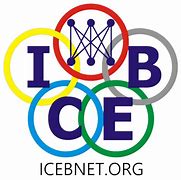Document Type
Article
Abstract
The need for travel agents became apparent as demand for foreign holidays escalated during the 1950s and 1960s. To facilitate consumer demand the various components of the tourist trip e.g. flights and accommodation, were integrated into a single product and sold through a central distribution point. In the 1970s, airlines took information technology to new limits through the development of Central Reservation Systems, a database that worked with ‘real time’ processing allowing for better inventory control. It soon became a key distribution channel enabling travel agents to gain further credibility. However, the latest technology revolution, the Internet, may serve to do otherwise. Its impact on travel distribution can be bestdescribed using Porter and Miller’s [13] words “… IT is changing the rules of competition in three ways. First, advances in IT are changing industry structure. Second, IT is becoming an increasingly important lever that companies can use to create competitive advantage… Finally, the information revolution is spawning completely new businesses”. However, traditional intermediaries are fighting back by developing e-commerce strategies that not only modernises traditional sales platforms, but also embrace current and future technology innovations. The Internet is an opportunity to move beyond price-based competition (as seen in the 1990s) to offer a more qualitative product. Despite the influx of new travel intermediaries keen to exploit this high growth market, ‘bricks and mortar’ travel agencies still have a future. Currently, not all sectors of society are confidant using the Internet and the UK Government’s ‘access for all’ programme is yet to be achieved. Over the longer term, they will also prevail, albeit in smaller numbers, because not all types of travel arrangements are suitable for the Internet; some are far too complex and lucrative to sacrifice face-to-face contact.
Recommended Citation
Gilbert, David; Powell-Perry, Jan; and Norrey, Sarah, "Going into E-Fall -- The Case of E-Commerce And UK Travel Agents" (2001). ICEB 2001 Proceedings (Hong Kong, SAR China). 27.
https://aisel.aisnet.org/iceb2001/27


